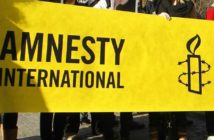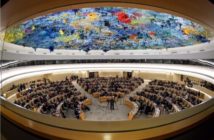 Violations include beatings with truncheons, suspending inmates from doors
Violations include beatings with truncheons, suspending inmates from doors
AFP – Rabat: Prisoners in most Moroccan jails are subjected to “cruel, inhuman and degrading treatment” due to a lack of effective controls and inspections, the kingdom’s National Human Rights Council said on Tuesday.
“These acts were noted in the majority of prisons visited, with a prevalence and intensity that varied from one to the next,” said a report that the NHRC will present to King Mohammad VI, who appoints the organisation’s members.
“The violations include beatings with truncheons, suspending [inmates] from doors with handcuffs, striking the soles of the feet, slapping, pricking with needles and burns,” the report said.
In September, the NHRC also criticised what it called the “archaic and inappropriate” state of psychiatric hospitals in Morocco.
The violations go against “laws governing penitentiary establishments and against all relevant conventions that view these acts as forms of cruel, inhuman or degrading treatment,” it said.
It added that temporary detention and slow legal proceedings were the primary cause of overcrowding in the kingdom’s jails.
The report was equally critical about the status of female prisoners.
“Due to socio-cultural reasons, they face cruel and degrading behaviour (insults, humiliation) both in police stations and in prisons,” the report said.
“Inmates incarcerated for immoral conduct are particularly targeted by some guards,” it said following a five-month investigation in several prisons across the kingdom.
The council also reflected on the situation of women who gave birth in prisons, saying “several prisons lacked child care, space and means for entertaining the children.”
The report said female “prisoners, after the time given to them to keep their children expires, are forced to abandon their children to third parties who use them in some cases for begging or place them in orphanages.”
The report recommended that the council call “for developing an action plan for eradicating torture in partnership with all concerned actors — including the judiciary, parliament, government and civil society.”
PrintEmail a friend
Share on facebookShare on twitterShare on emailShare on printMore Sharing Services2
.







